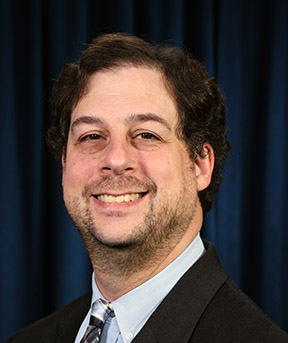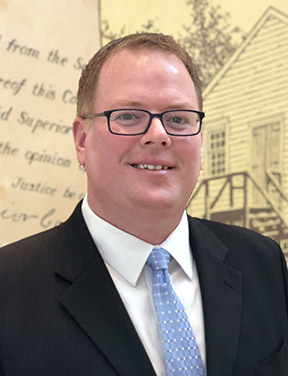July 2018 Newsletter
What All Lawyers Need to Know about the New Juvenile Laws
North Carolina has finally joined the rest of the nation, becoming the last state to raise the age of juvenile jurisdiction for criminal matters. The Juvenile Justice Reinvestment Act passed in 2017. While some parts of the law are already being implemented in North Carolina, the section that actually raises the age takes effect in December of 2019. Here are some answers to a few questions you may have about this new legislation.
What is “Raise the Age” all about?
 Until now, all 16 and 17-year old youth charged with a crime were sent immediately to adult court to be treated just like adults, with a public criminal record and all of the subsequent collateral consequences. Starting on December 1, 2019, these older teens will begin their cases in juvenile court, and most will be prosecuted there. This will allow access to services (counseling, educational help, life-skills training, etc.) that attempt to rehabilitate the children, keeping them out of the adult system and to shielding their future from a public criminal record.
Until now, all 16 and 17-year old youth charged with a crime were sent immediately to adult court to be treated just like adults, with a public criminal record and all of the subsequent collateral consequences. Starting on December 1, 2019, these older teens will begin their cases in juvenile court, and most will be prosecuted there. This will allow access to services (counseling, educational help, life-skills training, etc.) that attempt to rehabilitate the children, keeping them out of the adult system and to shielding their future from a public criminal record.
How will juvenile delinquency court change?
Most procedures in delinquency court will remain the same. However, 16 and 17 year old teens will be petitioned to delinquency court rather than arrested and charged in the adult criminal system. If they are petitioned on an A through G felony, the state can still indict them to send the matter immediately to adult court. Alternatively, the prosecutor may choose to conduct a probable cause hearing in juvenile court, where the judge must transfer the case to adult court upon a finding of probable cause to the high felony. However, these older teens that are charged with an H or I felony can stay in juvenile court, and all misdemeanor petitions will be prosecuted there. The new law also authorizes the creation of School-Justice Partnerships in each county to bring school officials, law enforcement, and the courts together in an attempt to reduce school-based arrests and charges for all children.
How will the new law affect me?
As of July 1, 2018, attorneys representing juveniles will be allowed access to parts of the online confidential juvenile records maintained by the clerk of court. So if you currently represent juveniles, apply now to be added by using the new AOC-A-258 form (available at nccourts.gov). Those of you who represent 16 and 17 year olds in adult court may want to begin learning the procedures in juvenile court so that you can continue to assist these clients after December 2019. Over the next year there will be trainings around the state to familiarize attorneys with Raise the Age law and to teach the new delinquency court procedures. Sign up now to attend the annual Juvenile Defenders Conference at the School of Government on August 17. Also, interested criminal law specialists may want to consider adding a certification in juvenile delinquency Contact Denise Mullen at the State Bar for details: dmullen@ncbar.gov.
Spotlight: Eric Zogry
Board Certified Specialist in Criminal Law - Juvenile Delinquency, North Carolina Office of the Juvenile Defender
 What led you to become a lawyer?
What led you to become a lawyer?
I wanted a career in public service, and I thought that being a lawyer—maybe protecting the rights of others—would be a good fit for me.
What made you decide to pursue certification?
When I applied to become the North Carolina juvenile defender, I stated that one of my goals was to help create a specialization for attorneys in juvenile court. I felt that juvenile representation, in particular, suffered from the perceptions of being an “entry level” practice, and that specialization would lend weight and esteem to the practice.
What's the best thing about achieving that goal?
It was so satisfying to have other juvenile experts, the sponsoring organization (North Carolina Advocates for Justice), and the Board of Legal Specialization support this small but dedicated group of attorneys. I consider it a career achievement.
What is it like to work with other attorneys specialized in juvenile delinquency?
It’s a real asset to call on these attorneys for advice on cases or policy. Their expertise in the field helps inform our office about trends and areas of focus.
What activities/volunteer groups are you involved in?
Our family recently joined Temple Beth Shalom and has really enjoyed being part of the congregation. I perform on acoustic six and 12-string guitar at services. At home I’m a “man cave maestro,” also playing electric guitar, bass guitar, drums, and percussion. I drive my family crazy, especially my kids when they’re learning to play or sing and I give them unsolicited advice.
Who is your role model and why?
My legal role model is Wallace C. “Wally” Harrelson, the first public defender in North Carolina, who was the chief in Guilford County. He taught me a combination of relentlessness and compassion as a lawyer.
What do you want non-juvenile delinquency attorneys to know about what you do?
Raise the Age is coming. If you’re interested in representing youth under 18 charged in juvenile court, contact our office: Office of the Juvenile Defender, (919) 890-1650, ncjuveniledefender.com.
Notes from the State Bar: A Change in Leadership
 Brian Oten, newly appointed director of legal specialization for the North Carolina State Bar, is taking over the role as Alice Neece Mine moves into the position of executive director later this year. Brian officially started his new job on July 1, 2018, after working for the State Bar’s Office of Counsel since 2007. Brian attended UNC-Chapel Hill for both law school and his undergraduate degree in political science. While a law student, he served as managing editor of the First Amendment Law Review. After law school, he served as a law clerk to Associate Justice Edward T. Brady of the Supreme Court of North Carolina and then to Judge Lacy H. Thornburg of the Federal District Court in the Western District.
Brian Oten, newly appointed director of legal specialization for the North Carolina State Bar, is taking over the role as Alice Neece Mine moves into the position of executive director later this year. Brian officially started his new job on July 1, 2018, after working for the State Bar’s Office of Counsel since 2007. Brian attended UNC-Chapel Hill for both law school and his undergraduate degree in political science. While a law student, he served as managing editor of the First Amendment Law Review. After law school, he served as a law clerk to Associate Justice Edward T. Brady of the Supreme Court of North Carolina and then to Judge Lacy H. Thornburg of the Federal District Court in the Western District.
Brian brings energy and excitement to this new role, as well as an interest in information technology that should greatly benefit the specialization program. He looks forward to working with specialists across the state as they continue their dedication to improve the practice of law and the services they provide to clients.
Brian is married, with two adorable daughters. Please join the Board of Legal Specialization and the staff in welcoming Brian to his new role.